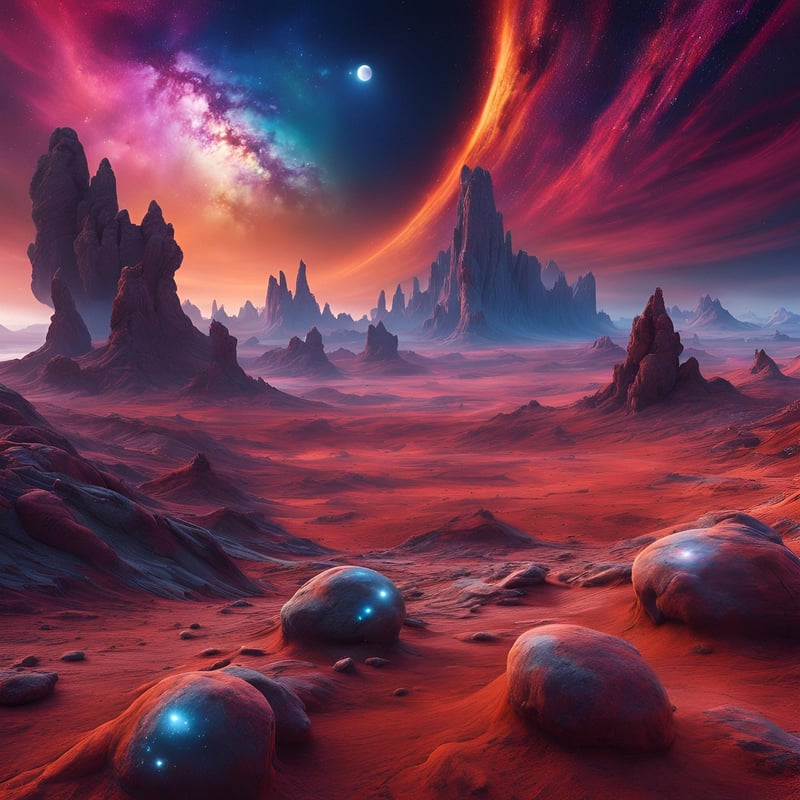Alien Ecosystems
Exploring Life Beyond Earth: Alien Ecosystems
As humans continue to unlock the mysteries of the universe, one of the most profound questions we face is whether life exists beyond Earth. The search for extraterrestrial life encompasses not just the quest for intelligent beings but also the exploration of alien ecosystems. Imagine a world where life thrives in ways we can scarcely imagine, adapting to extreme environments and evolving unique biological systems.
Characteristics of Alien Ecosystems
Alien ecosystems may differ vastly from the familiar ecosystems we find on Earth. These exotic environments could be home to organisms with bizarre adaptations, strange biochemistries, and unusual interactions. Some key characteristics of alien ecosystems include:
- Extreme temperatures, pressures, and radiation levels
- Novel forms of energy production and consumption
- Unconventional food chains and symbiotic relationships
- Diverse methods of reproduction and genetic exchange
Examples of Alien Ecosystems
While we have yet to discover definitive proof of extraterrestrial life, scientists have speculated about the potential forms alien ecosystems could take. Some hypothetical alien ecosystems include:
- Hydrocarbon Seas: Imagine a world where vast seas of liquid methane and ethane serve as the cradle of life, with organisms adapted to thrive in frigid hydrocarbon environments.
- Silicate-Based Life: On a planet with molten silicate lava flows, organisms could harness the heat and minerals to sustain their metabolisms, leading to a radically different biochemical basis for life.
- Aerial Habitats: In the skies of a gas giant, airborne creatures might navigate dense atmospheres using gas-filled bladders or wings that harness updrafts and turbulence.
Implications for Astrobiology
The study of alien ecosystems has significant implications for the field of astrobiology. By examining the extremes of life on Earth and theorizing about potential extraterrestrial habitats, scientists can expand our understanding of the conditions that could support life beyond our planet. Discovering alien ecosystems would not only revolutionize biology but also challenge our fundamental assumptions about the nature of life itself.
Conclusion
While the search for alien ecosystems remains a tantalizing scientific frontier, it underscores humanity's insatiable curiosity about the cosmos and our place within it. As we peer into the vast expanse of space, we are driven by a desire to uncover the diversity of life forms that may exist beyond Earth. Ultimately, the discovery of alien ecosystems would not only reshape our understanding of biology but also redefine our perspective on the interconnectedness of life throughout the universe.

